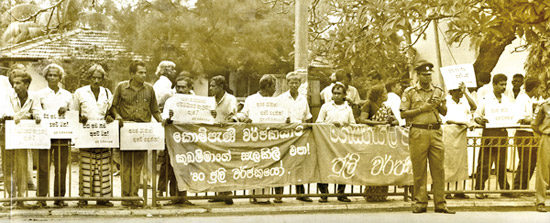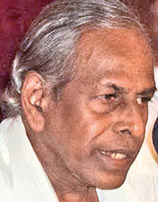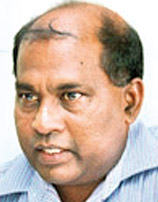|
July 1980 strikers:
End of a long dark tunnel?
by Dhaneshi Yatawara
Will the long drawn out tragedy and struggle of the July 1980
workers' general strike soon reach some closure at last? A whole
generation after tens of thousands of striking workers lost their jobs
under tough Emergency laws enforced by the United National Party
government of the time, the current Finance Minister, belonging to that
same party, has offered a compensation package through his budget to
those now ageing ex-strikers. Some trade union leaders, however, are
arguing that the compensation is not enough.
 |
In July 1980, after months of frustration over rising living costs
and the failure of their union leaders to win adequate pay hikes, scores
of thousands of members of the country's then massive trade union
movement spontaneously struck work even before their leaders could
actually decide on union action. Faced with a mass strike wave that
threatened the stable growth path of a newly liberalised economy, the
government of the time did not hesitate to take the most drastic steps
to suppress the work stoppage.
After repeated warnings, the late President J. R. Jayewardene
summarily used the tough Emergency powers and 'Essential Services' law
to sack scores of thousands of state and private sector striking workers
including the cream of the country's main trade union leaderships.
According to union leaders, initially thousands lost their jobs for
staying away from duties in violation of the 'Essential Services'
enforcement. For years afterward, the strikers were compelled to
organize to campaign, initially to resist sacking and then, to attempt
to regain their lost employment and, finally, to win compensation if
reinstatement was not possible.
Lump sum payment
Finance Minister Ravi Karunanayake has specifically allocated money
to compensate those who lost their jobs permanently due to the then
government's counter-strike move. Galvanised by this belated remedial
initiative, trade union leaders have not moved to engage with the
Government to negotiate further on this matter. The Budget for 2016
proposes a single lump sum payment of Rs.250,000 each to the 1980 July
strikers and the Rs. 500 million has been allocated for this purpose.
 |
|
General Secretary of the
July Strikersí Association
P. Amaradiwakara |
 |
|
General Secretary of Ceylon
Teachersí Union, Joseph Stalin |
Currently, according to data available with trade union activists,
over 3000 July 1980 strikers are being paid by the Government a
cost-of-living allowance of Rs. 6000 monthly. But union leaders and
former strikers are unhappy.
This lump sum payment will end the regular monthly allowance
currently being paid to the July strikers, charged General Secretary of
the Ceylon Teachers' Union, Joseph Stalin, a veteran union leader.
"It is not fair by these people who are very old now and in need of
more support, not less," he argued, adding that the lump sum payment was
another way of restricting the regular allowance payment to just three
and half more years. "In the long term this does not seem to be
supportive to our comrades. The Government must discuss with the
relevant parties and re-think this proposal," he emphasised.
The 1980 July strike was carried out by the vast membership of the
Joint Trade Union Action Committee (JTUAC), a broad alliance of trade
unions across a range of sectors demanding wage increases. The final set
of demands is reported to have included a wage increase of Rs. 300 per
month, payment of Rs. 5 per unit increase in the official Cost-of-Living
Index and, the withdrawal of punishment on those who had participated in
a union protest held on June 5, 1980, recalled General Secretary of the
July Strikers Association P. Amaradiwakara.
"There needs to be more clarity in the system of payment that is
scheduled to be delivered to the strikers," Amaradiwakara said.
Following discussions with the previous government a decision was
made to pay Rs. 5000 per month as a cost of living allowance to the
strikers, he said. "The Government started paying from 2003 January.
Then in 2004 it was increased to Rs. 6000," he added. He explained that
over 3000 people are currently being paid.
The public sector employees were reinstated in their posts after
compensating them and then they were absorbed into the pension scheme,
according to Amaradiwakara. The Cost-of-Living allowance was initially
paid to the workers of the private sector companies, employees of the
Thulhiriya textiles company and the public corporation sector.
Wait and see
Nearly 90% of the July strikers are with the Association,
Amaradiwakara claimed. He pointed out that in 1980 the then UNP regime
had summarily sacked up to 100,000 workers over their demand for a small
pay rise, "not even allowing a discussion".
"We requested both the previous and the current Government to
increase the monthly allowance to Rs. 10,000. And now the Government is
proposing to give a lump sum. As the decision is not yet finalised with
the Budget, we will wait and see," he said. Amaradiwakara emphatically
called on the government to hold discussions with the unions and the
Association before reaching a final decision.
The Central Committee of the July Striker's Association will meet on
December 13 to further discuss the proposal made in the budget, he
added. |

